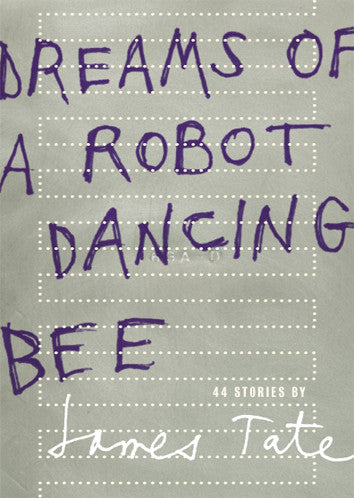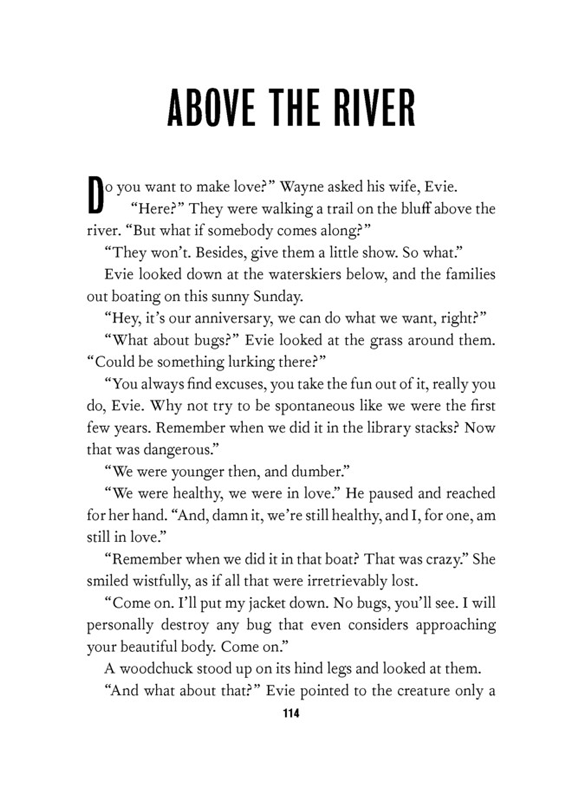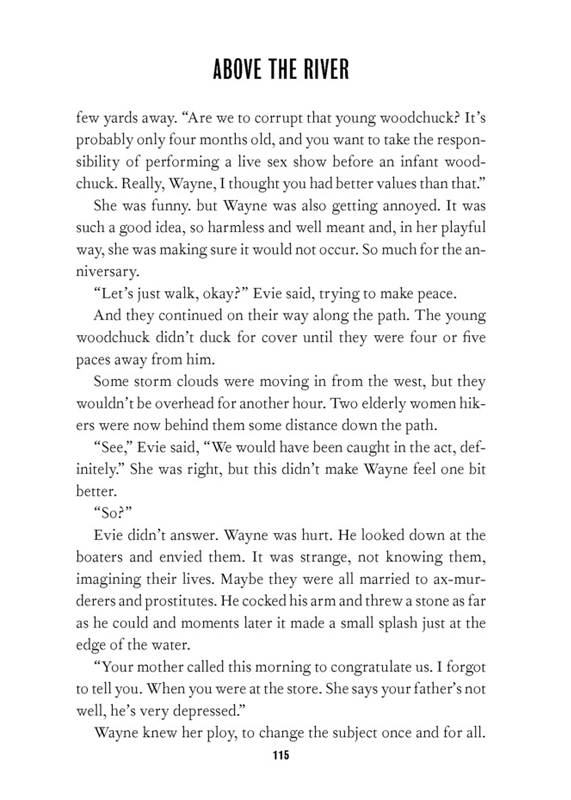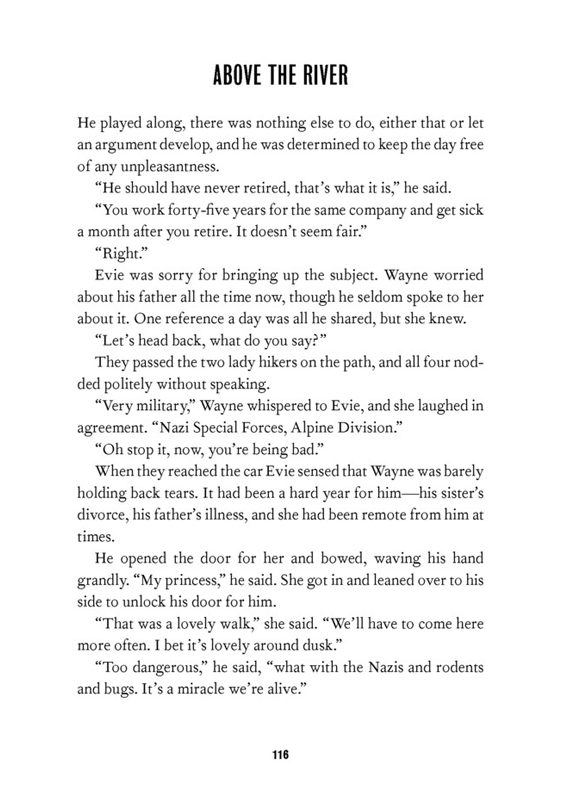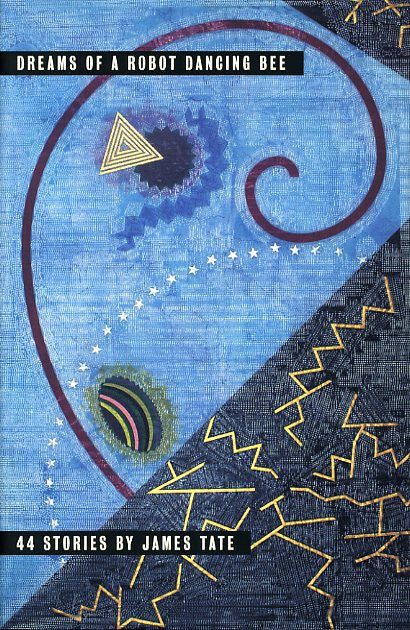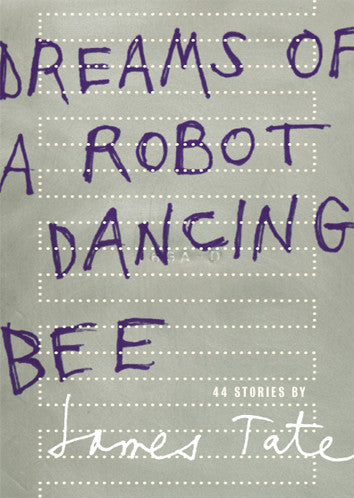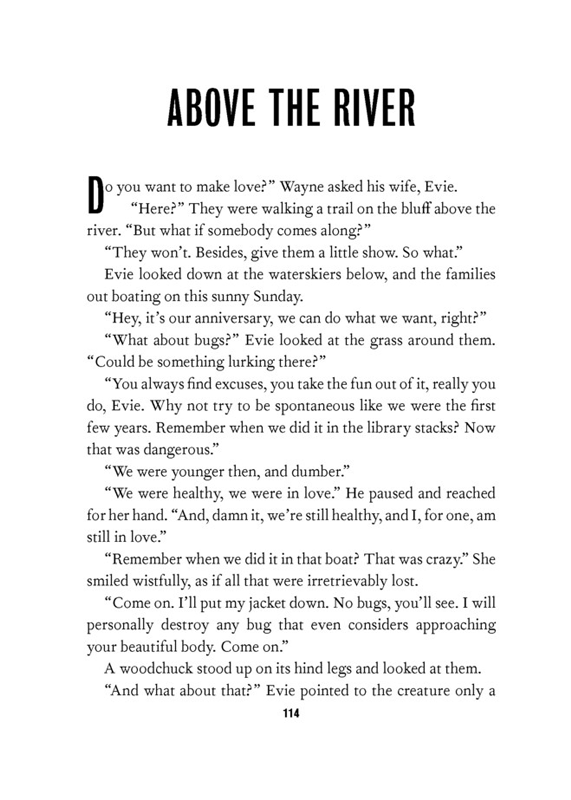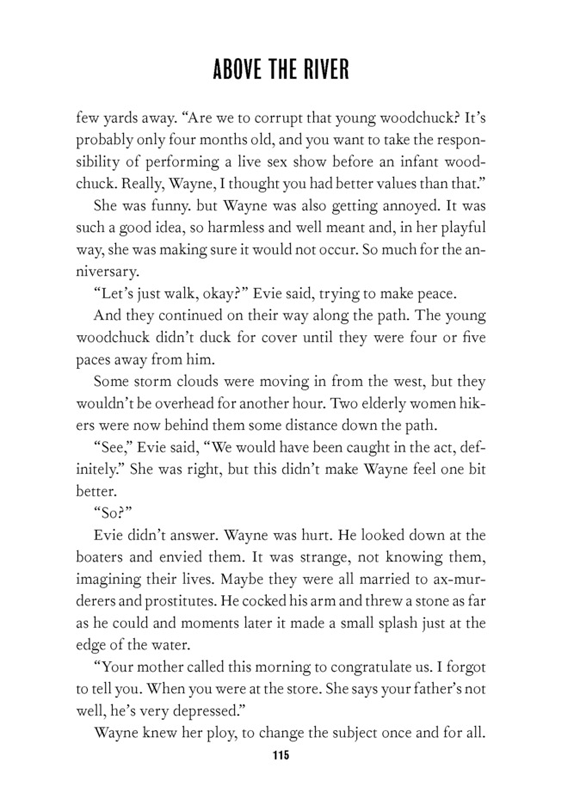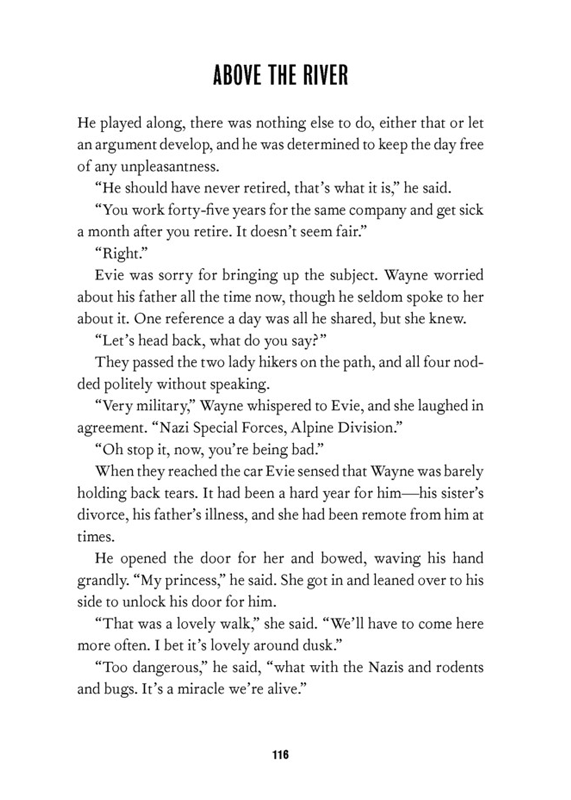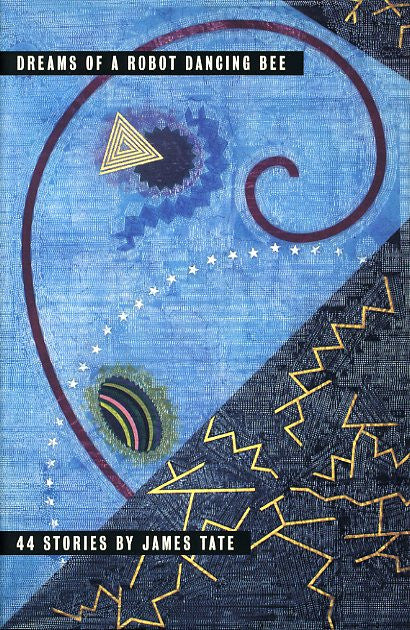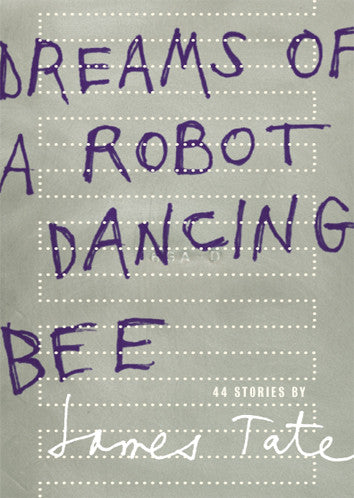
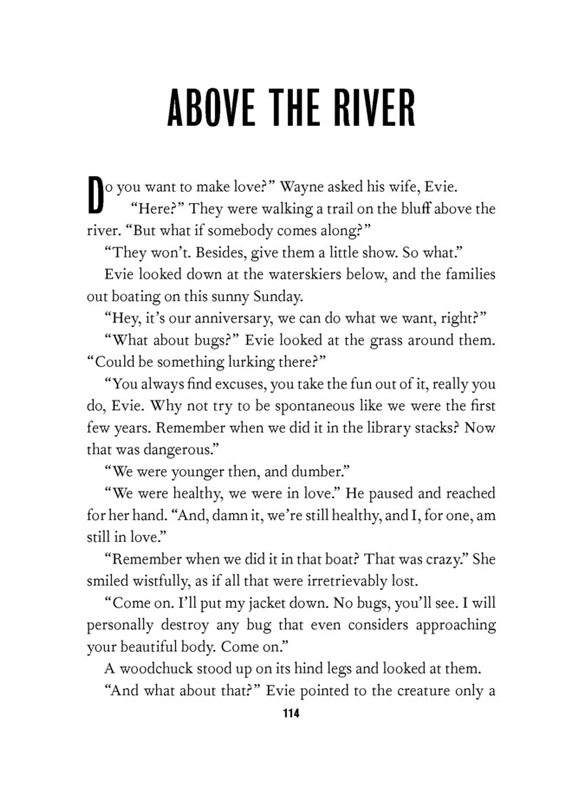
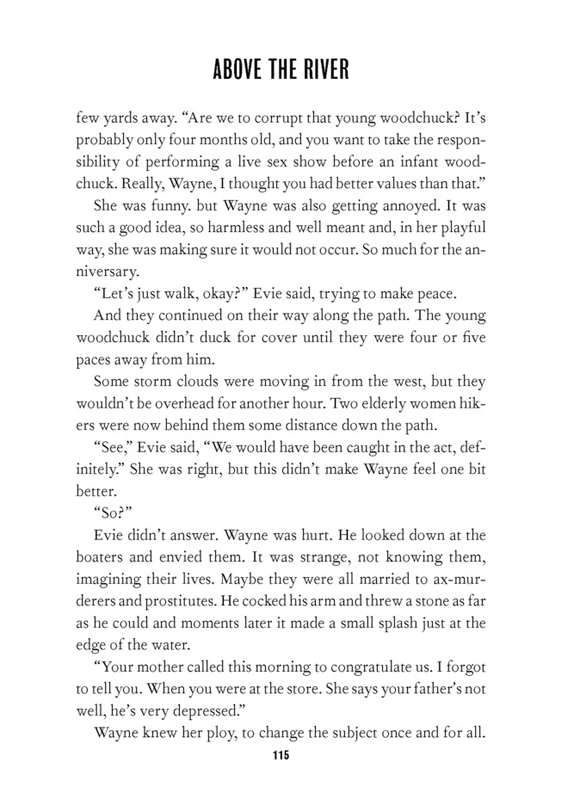
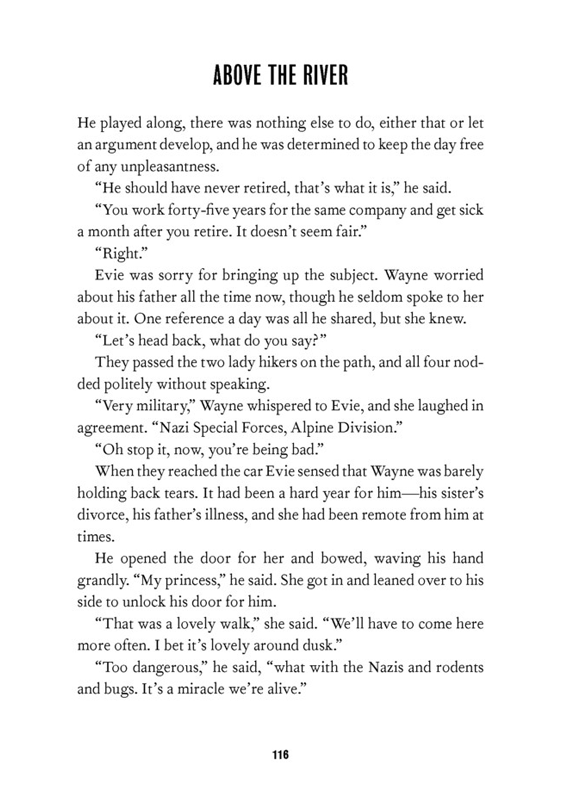
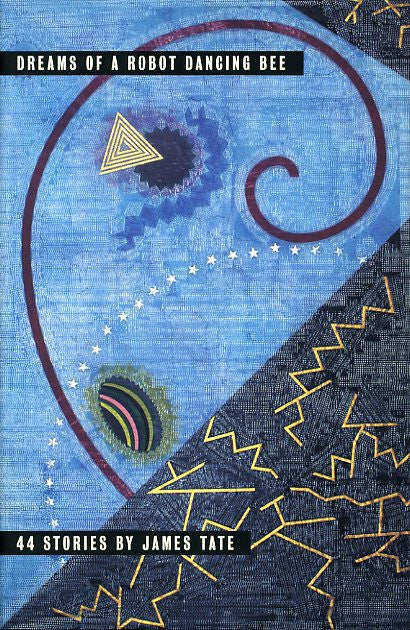
Dreams of a Robot Dancing Bee
Dreams of a Robot Dancing Bee
By James Tate
-
Pulitzer Prize and National Book Award winning poet James Tate’s only collection of short fiction.
The forty-four stories of Dreams of a Robot Dancing Bee will come as a welcome surprise to readers familiar with Tate’s previous work. Like Chekhov and Bruno Schultz, Tate seems both awed and bemused by small town life, with its legends, flights of fancy, heightened emotions, tragedies and small ruptures in the fabric of ordinary existence. Tate’s narrators are gleeful, peripatetic, dry, mundane, clueless, witty, and self-pitying; in their slightly odd, yet totally recognizable American idiom, they reveal a skewed, yet all the more familiar middle America. -
Tate brings a poet’s touch to the short stories in this astounding and bizarre collection, which reflects the writer’s flair for black humor and absurdity as he explores the nooks and crannies of ordinary life. Tate is a blunt, sharp narrator who takes his stories in unexpected directions, and his talent for brevity surfaces in the many short-short entries that pack a powerful conceptual wallop in the space of a few pages ... fiction lovers who come to this book with an open mind will find themselves challenged and entertained by a brilliant writer with a very fertile imagination.
Publishers Weekly, Starred Review
These characters are not writers in disguise; they’re real people, their language is real, and their tales have a kind of stealth lyricism. These are stories only in the sense that they are narratives: plot is just a sheen, their soul is poetry.
Kirkus Reviews, Starred Review
Like forty-four test tubes, these stories contain a series of meticulously prepared chemistry experiments... Tate, the long-acclaimed poet, uses a disarmingly pedestrian voice to lure the reader to a place of bizarre poignancy. He makes eccentricity look good, as a poet should.
The New Yorker
Bitterness, amusement, bemusement--you know things will end badly with this beginning: “She had placed the turkey in the garage two days before Thanksgiving, just as she had for years without any untoward consequence.” The consequences of decisions made by and about Tate’s characters are unexpected, often sad, sometimes sweet, always engaging.
Marilyn Dahl, Shelf Awareness
When he turns to prose, this Pulitzer Prize-winning poet exhibits a surprisingly uncomplicated style. The reissue of his 2002 short story collection includes 44 oddly moving tales about vacationing spies, sour video-store managers and creepy, gynecologists.
Timothy Hodler, Details
The stories describe the natural tension between chaos and order in existence more accurately than the linear narrative of traditional prose ... It’s original, vibrant, accessible, and challenging. Some day a number of these stories will become part of another masterpiece of literature: the selected works of James Tate.
Josh Cook, Bookslut
We may find the messy relationships and personal shortfalls to be the stuff of everyday life, but Tate’s language makes each of them hyper-real. Though we may not quite understand a narrator’s epiphany when phrased as “my husband is the raven of dawn,” we can understand her (and Tate’s) quest to make meaning out of nonsense-perhaps ultimately the very point of “everyday life.” Tate details such simultaneously obscure and lucid moments eloquently, almost expertly-and for that we can only say beep. Beep, honk.
Melissa Maerz, Rain Taxi -
James Tate (1943-2015) is the author of numerous books of poetry, including Return to the City of White Donkeys (Harper Collins, 2004); Memoir of the Hawk (Ecco Press, 2001); Shroud of the Gnome (1997); and Worshipful Company of Fletchers (1994), which won the National Book Award. His Selected Poems (1991) won the Pulitzer Prize and the William Carlos Williams Award. His collection of short fiction, Dreams of a Robot Dancing Bee, was published by Verse Press in 2002. His honors include a National Institute of Arts and Letters Award for Poetry, the Wallace Stevens Award, and fellowships from the Guggenheim Foundation and the National Endowment for the Arts. He taught at the University of Massachusetts in Amherst.
(Author photo by Stephen Long)
Publication Date: April 4, 2002
ISBN# 9781933517353 (5.5x8.5 232pp, paperback)
ISBN# 9780970367259 (5.5x8.5 232pp, trade hardcover)
Couldn't load pickup availability
